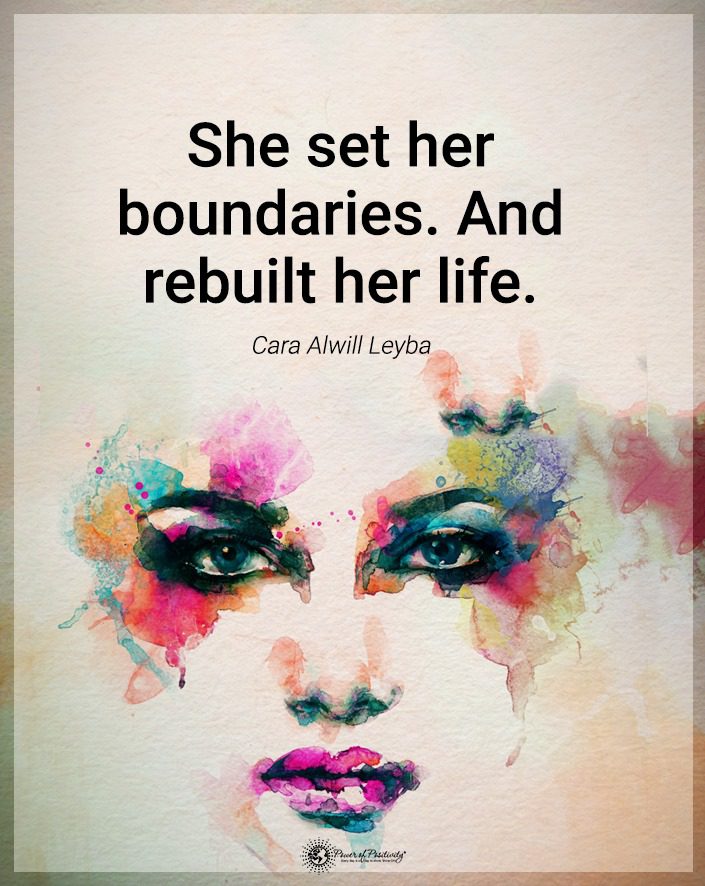These red flags reveal questionable intentions.
Romance is necessary for most people for happiness and fulfillment. They can be sources of joy, growth, and emotional support. However, relationships often have a fair share of complexities and challenges. Among these challenges, romantic manipulation is a particularly insidious issue. But how can you tell your partner is trying to use romance to manipulate you?
Relationship manipulation can sometimes be hard to spot, especially when disguised as love and affection. Unlike overt forms of negativity, manipulation often operates under the radar, which makes it all the more dangerous. This article delves into the subtle signs of manipulation in a romantic context, aiming to empower you to recognize and address such situations for your mental and emotional well-being.
The Subtlety of Manipulation in a Romance
The world of love and romance is often seen through rose-colored glasses. We learn to look for grand gestures of love and affection as signs of a true connection. However, it’s crucial to understand that love and manipulation can sometimes be intertwined in a way that’s hard to distinguish. Manipulative behavior in a relationship often comes in actions or words that are initially perceived as caring but are, in reality, controlling and self-serving.
What Are the Signs Your Partner Is Using Romance to Manipulate You?
It’s important to remember that love should feel empowering, not diminishing. It should be about mutual respect and freedom, not control and dependency. Understanding the subtle differences between genuine affection and manipulation is key to maintaining healthy, positive relationships.

Sign 1: Overwhelming Attention at the Start of the Romance
An overwhelming amount of attention at the start is an early sign of a person trying to manipulate you. This isn’t just the typical excitement you see in new relationships. Here, we’re talking about a level of attention that seems excessive. This could manifest as constant texting, calling, or wanting to spend every moment together, often called “love bombing.”
While it might feel flattering initially, this intensity can be a tactic to establish a deep emotional connection quickly. The manipulator’s goal is to make you feel special and loved to the point where you become emotionally dependent on them. It’s crucial to differentiate between genuine interest and an overbearing approach that seeks to fast-track emotional dependency.
Sign 2: Isolation from Friends and Family
Another significant red flag is when a partner isolates you from your support network. This can be subtle, such as criticizing your friends and family, derogatory comments about them, or creating situations that lead to conflicts with your loved ones. Over time, this behavior can result in you spending less time with others and more time with your partner.
Isolation is a classic manipulation tactic. It’s aimed at reducing your support system, making you more dependent on your partner. It’s important to be aware of changes in your relationships with friends and family when you enter a new romantic relationship. A loving partner will encourage your connections, not hinder them.
Sign 3: Constant Flattery and Romance with Ulterior Motives
Compliments and flattery are typically seen as expressions of admiration in a relationship. However, when flattery is constant and over-the-top, it can be a tool for manipulation. Manipulators often use flattery to lower your guard, make you feel special, and gain your trust. This tactic can be very effective because it feeds into our natural desire for approval and affirmation.
However, the hidden motive behind such exaggerated flattery is often to manipulate. For instance, a partner might shower you with compliments, only to later use this as leverage – reminding you of how ‘good’ they are to you, obligating you to comply with their demands or wishes. Recognizing when flattery is genuine and a manipulation tool is vital to avoid falling into unwarranted obligation.
Sign 4: Pushing Boundaries Under the Guise of Love
Healthy relationships demand mutual respect, including respecting each other’s boundaries. Manipulators, however, often push these boundaries under the pretext of love or concern. It could manifest in various forms, like insisting on access to your devices, pressuring you into commitments before you’re ready, or disregarding your comfort levels in various situations.
Someone who authentically loves and respects you will understand and honor your boundaries. Manipulation comes into play when these boundaries are repeatedly crossed, with your concerns dismissed as overreactions or a lack of trust. It’s crucial to be alert to these signs and stand firm on your boundaries, as they are integral to your individuality and well-being.
Sign 5: Creating a Debt of Gratitude
Another subtle tactic of manipulation is creating a sense of indebtedness. A manipulative partner might go out of their way to do something for you, often unasked, and then hold it over your head. This creates a feeling of obligation, making it difficult for you to refuse their requests or stand up to them.
The underlying message in this behavior is that you ‘owe’ them for their kindness or generosity. However, favors and acts of kindness are given freely without expecting something in return in a healthy relationship. Awareness of this dynamic can help you identify situations where you’re being manipulated into feeling indebted.
Sign 6: Gaslighting and Reality Distortion
Gaslighting is a particularly harmful form of manipulation in which the manipulator tries to make you doubt your memories, perception, or sanity. It’s an attempt to distort your reality, often making you question your thoughts and decisions. The manipulator can do this by outright denying events, trivializing your feelings, or twisting facts to favor their narrative.
The effects of gaslighting can be profoundly damaging, leading to a loss of self-confidence and an inability to trust your judgment. Recognizing gaslighting is crucial for protecting your mental health. It involves acknowledging the discrepancies between your experiences and your partner’s claims and trusting your perceptions and feelings.
Sign 7: Inconsistent Emotional Reactions
Inconsistency in emotional reactions can be a confusing and subtle sign of manipulation in a relationship. A manipulative partner may display erratic emotional responses that leave you uncertain and off-balance. One moment, they might be loving and affectionate; the next, they might be cold and distant without any apparent reason. This unpredictability can be a tactic to keep you in a state of constant anxiety about where you stand in the relationship.
This inconsistency isn’t just confusing; it’s a form of manipulation designed to control. It can lead you to constantly try to ‘fix’ things or adjust your behavior in hopes of returning to the ‘good’ times, making you more malleable to their desires. Recognizing this pattern is crucial in understanding that you’re not responsible for your partner’s erratic emotional responses.
Sign 8: Excessive Jealousy and Possessiveness
While jealousy is a common human emotion, in excess, it can be a powerful tool fto manipulate a partner. Excessive jealousy and possessiveness often stem from a partner’s insecurities, leading them to exert control over you. This can manifest in behaviors like constant questioning about your whereabouts, undue suspicion about your interactions with others, or demands to limit your social interactions.
Manipulative jealousy is not about love or protection; it’s about control. It seeks to isolate you from other people and restrict your freedom. Understanding the difference between normal feelings of jealousy and manipulative possessiveness is key to maintaining your independence and sense of self within a relationship.

Sign 9: Ultimatums and Coercive Tactics
Ultimatums are a clear sign of manipulation in relationships. These are coercive tactics where a partner threatens to end the relationship or take other drastic action unless you comply with their demands. Ultimatums leave no room for discussion or compromise, placing you in a situation where you feel forced to comply.
This tactic is particularly manipulative because it preys on your fear of losing the relationship. Healthy relationships require mutual respect and open communication, not threats and coercion. Distinguishing between a genuine concern and a manipulative request is crucial for maintaining a healthy relationship dynamic.
Sign 10: Unwarranted Criticism and Undermining Self-Esteem
Another subtle form of manipulation is through unwarranted criticism and actions that undermine your self-esteem. A manipulative partner may frequently criticize your actions, appearance, or character. This constant criticism, often under the guise of ‘just joking’ or ‘trying to help,’ can gradually erode your self-confidence.
The goal of this tactic is to make you feel less and more dependent on the manipulator for validation and approval. A healthy partner will uplift and encourage you, not continually find fault. Recognizing and addressing unwarranted criticism is essential for maintaining your self-worth and autonomy in a relationship.
Sign 11: Overdependency and Over-reliance
Creating a sense of overdependency in a relationship is a common tactic of manipulation. A manipulative partner may gradually position themselves as indispensable in your life, making you feel you can’t manage without them. This can involve taking over various aspects of your life, from making decisions to handling your personal affairs, eroding your independence and self-reliance.
This behavior is not about genuine care; it’s about gaining control by making you feel helpless and dependent. Maintaining your independence and decision-making power in a relationship is crucial, as well as recognizing when support turns into control.
Sign 12: Public Persona vs. Private Behavior
A stark contrast between a partner’s public persona and private behavior can be a red flag someone wants to manipulate you. While they may present as charming, attentive, and loving in public, they might be dismissive, cold, or abusive in private. This discrepancy can leave you confused and questioning your perception of the relationship.
This behavior is manipulative, often leaving you doubting your own experiences and hesitant to seek help. Others might not believe your account due to your partner’s public persona. Understanding this duality is important in recognizing the true nature of your relationship.
Sign 13: Guilt-Tripping and Emotional Blackmail
Guilt-tripping and emotional blackmail are potent tools in a manipulator’s arsenal. These tactics involve inducing guilt to control or influence your actions. A manipulative partner may remind you of past mistakes or sacrifices they’ve made, suggesting you owe them compliance with their wishes.
Emotional blackmail might also involve threats to harm themselves or end the relationship if you don’t adhere to their demands. Recognizing and resisting these guilt-induced manipulations is essential for maintaining your emotional freedom.
Sign 14: Controlling Financial Resources
Financial control is a less obvious but equally significant sign they want to manipulate you. This can involve taking control of your finances, restricting access to money, or making you feel guilty about spending. By controlling the financial aspect of your life, a manipulator gains substantial power over your choices and freedom.
Financial independence is key to any healthy relationship. Be wary of situations where your financial autonomy is being compromised under the guise of ‘help’ or ‘efficiency.’
Sign 15: Keeping You in a Constant State of Uncertainty of the Romance
A common manipulative technique is to keep you in a constant state of uncertainty about the relationship. This might involve unpredictable mood swings, inconsistent commitment, or unclear intentions. Such behavior keeps you on edge, always trying to figure out where you stand, which can be emotionally exhausting and destabilizing.
Recognizing this pattern is crucial as it’s a deliberate strategy to keep you off-balance and more easily controlled.
Final Thoughts on The Signs Your Partner Is Using Romance to Manipulate You
Recognizing the signs of a partner who uses romance to manipulate you is necessary for your emotional and mental well-being. Healthy relationships are based on mutual respect, trust, and open communication. If you recognize these signs in your relationship, it’s important to take them seriously.
Seeking support and professional advice can provide clarity and guidance on addressing these issues. Looking after your mental and emotional health is necessary for your happiness. Relationships should add to your life, not detract from it. Being informed and aware is the first step towards ensuring your relationships are healthy, respectful, and fulfilling.



















